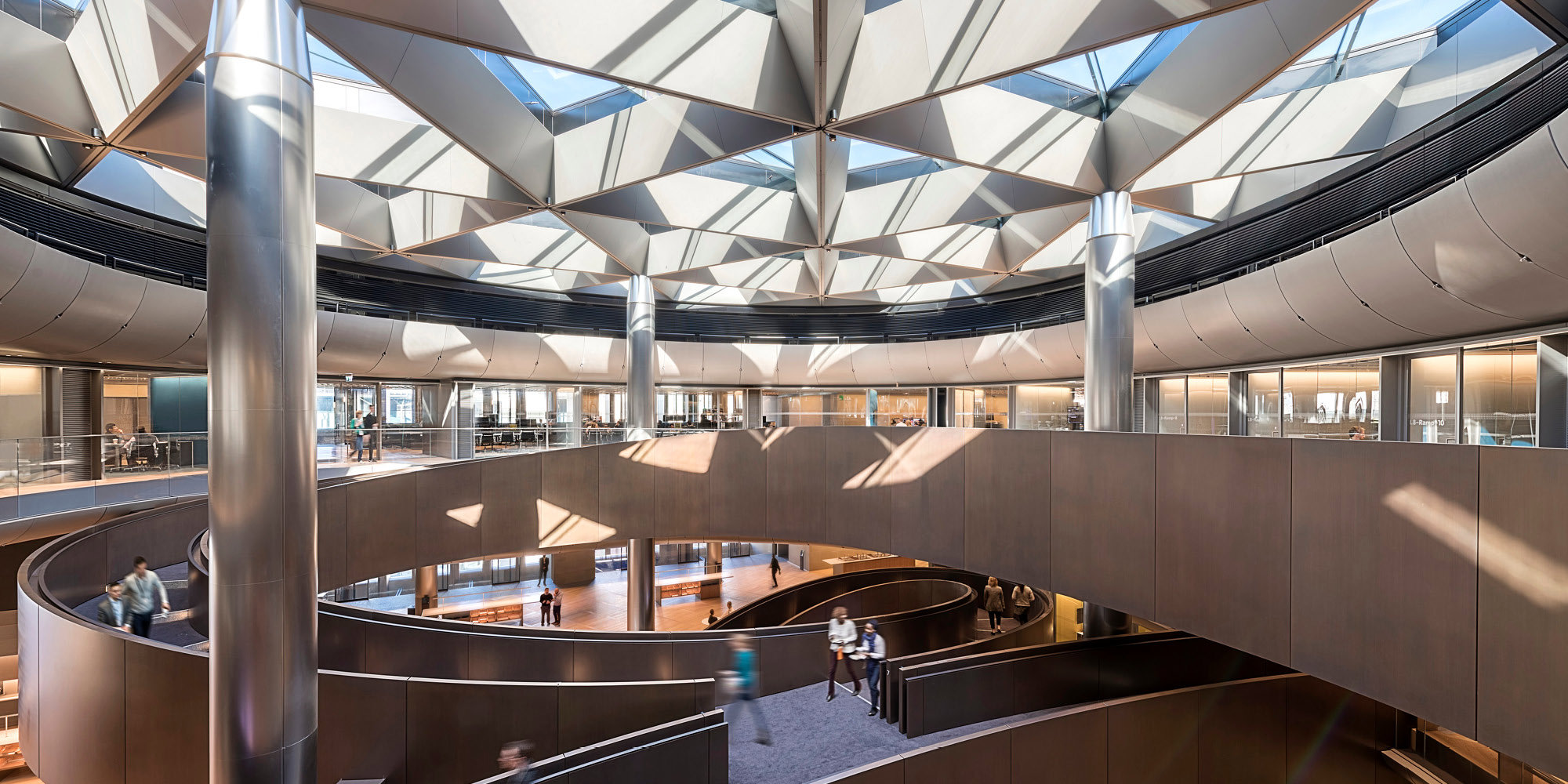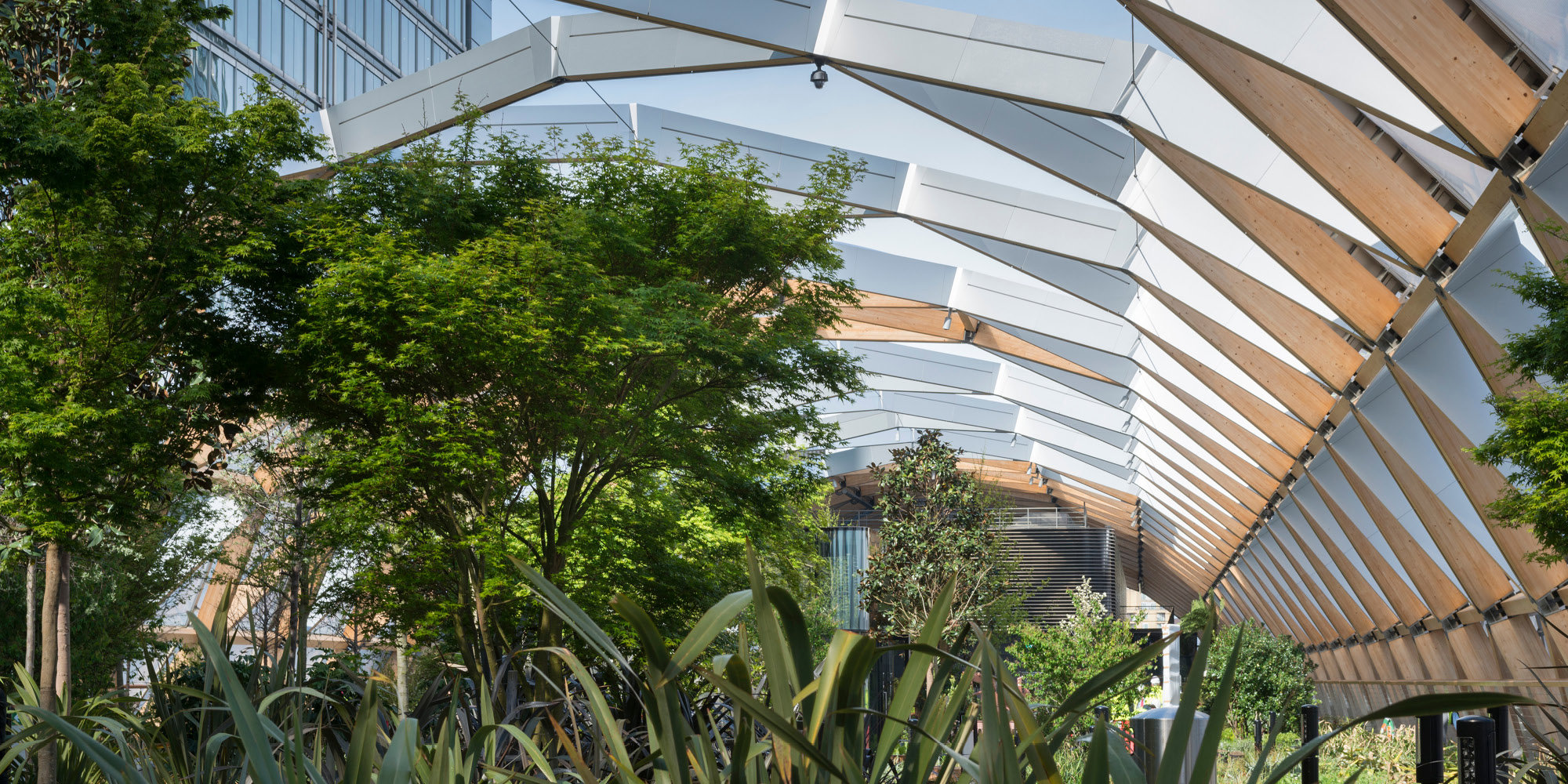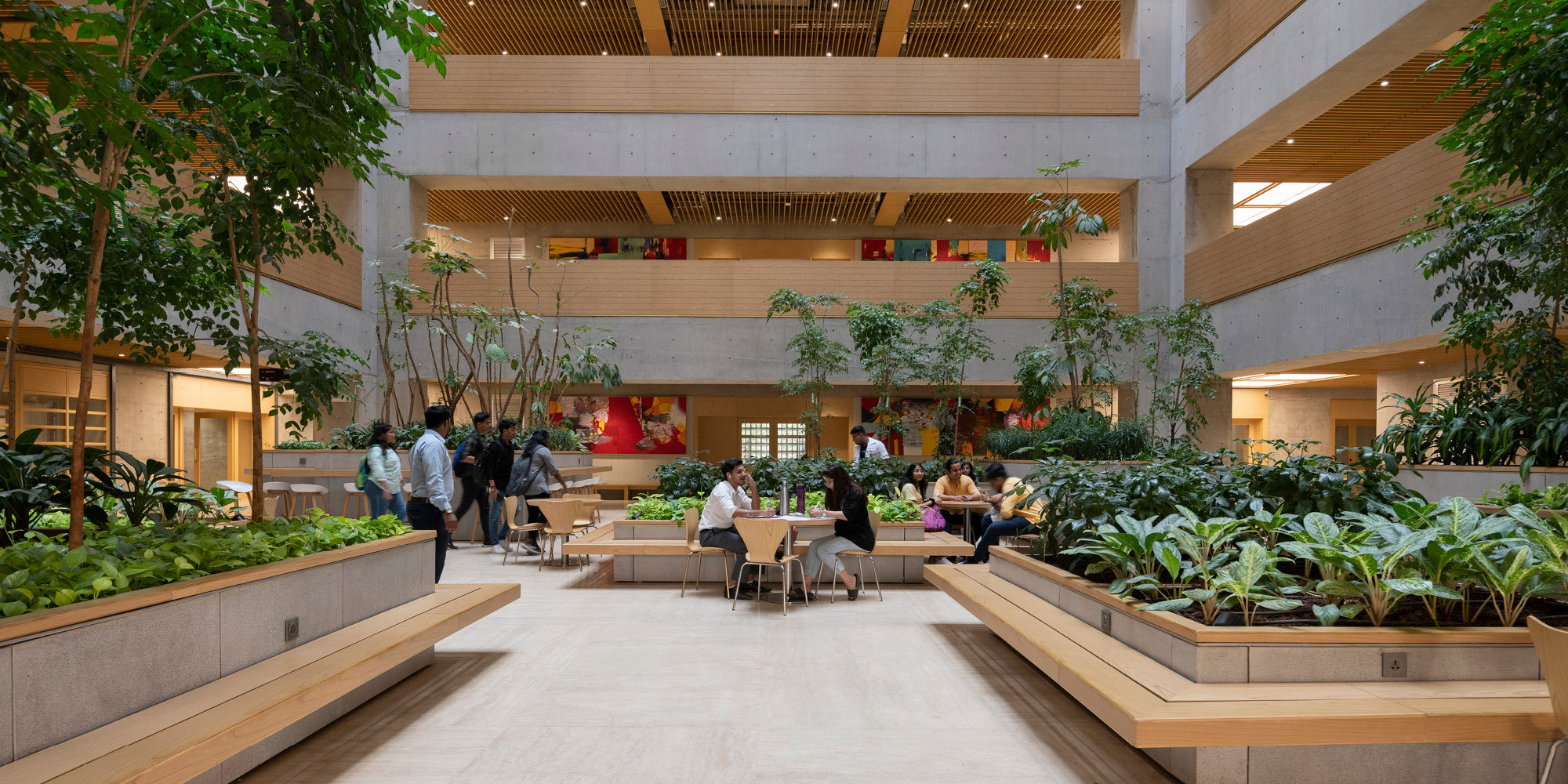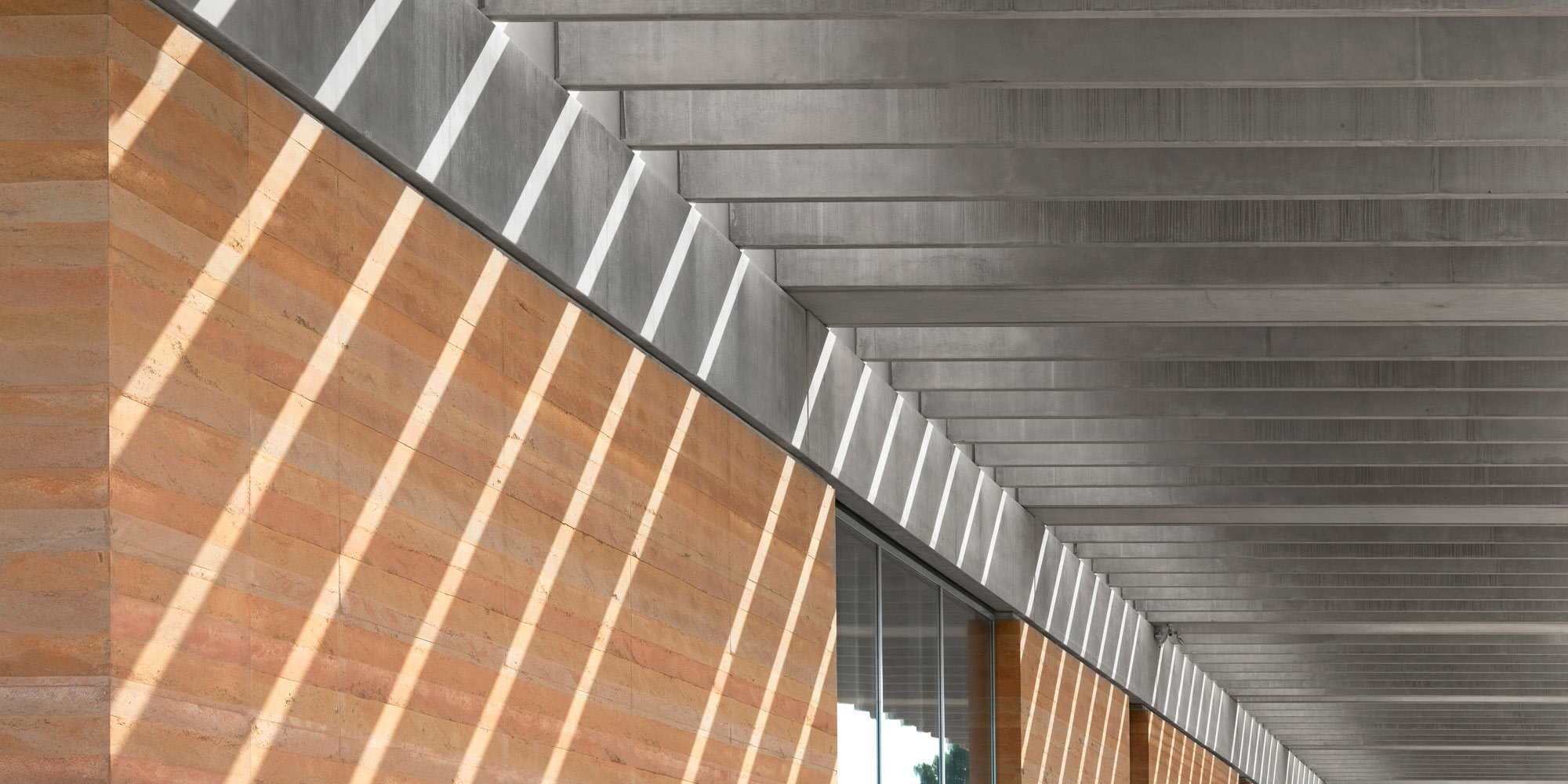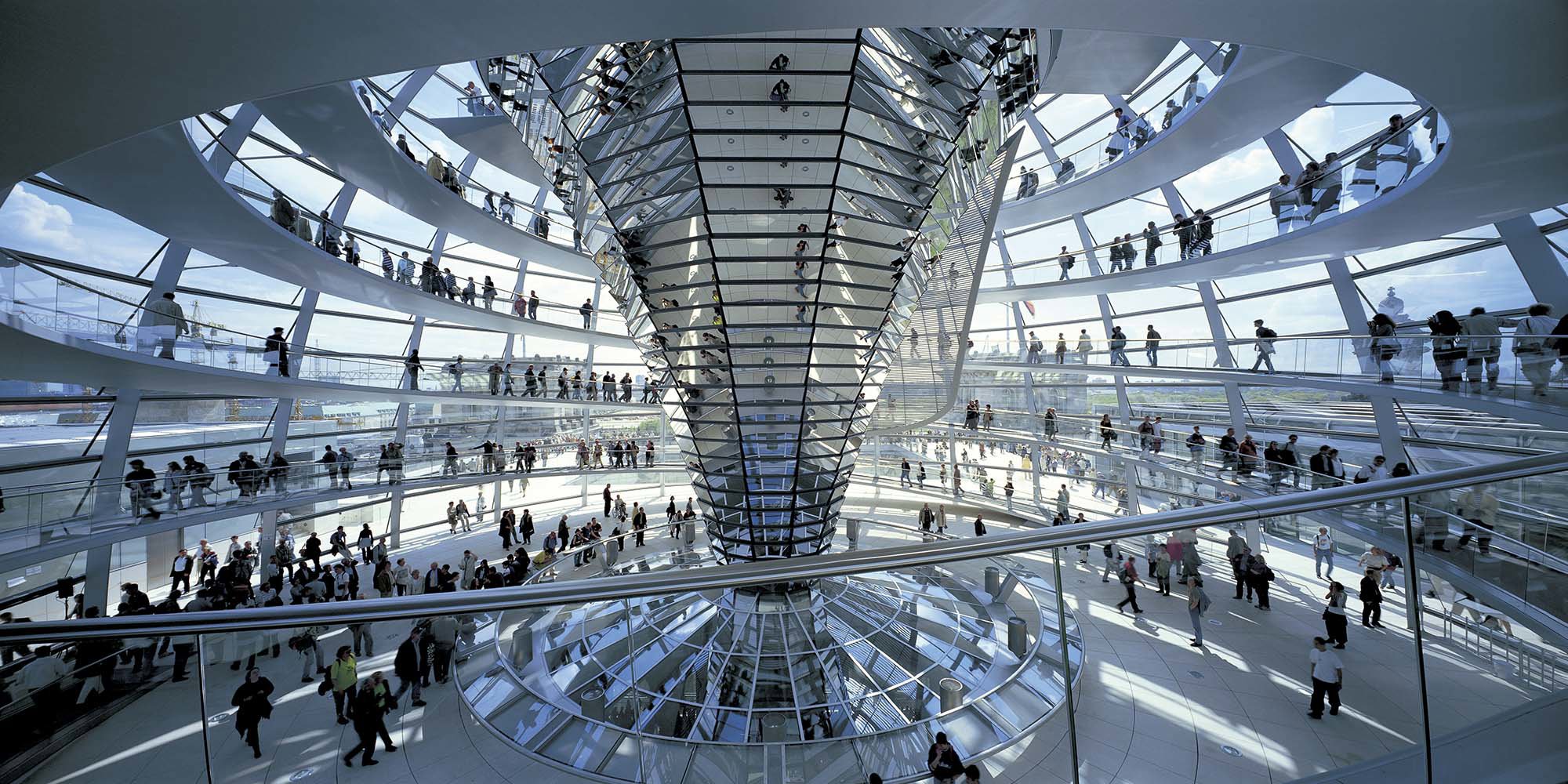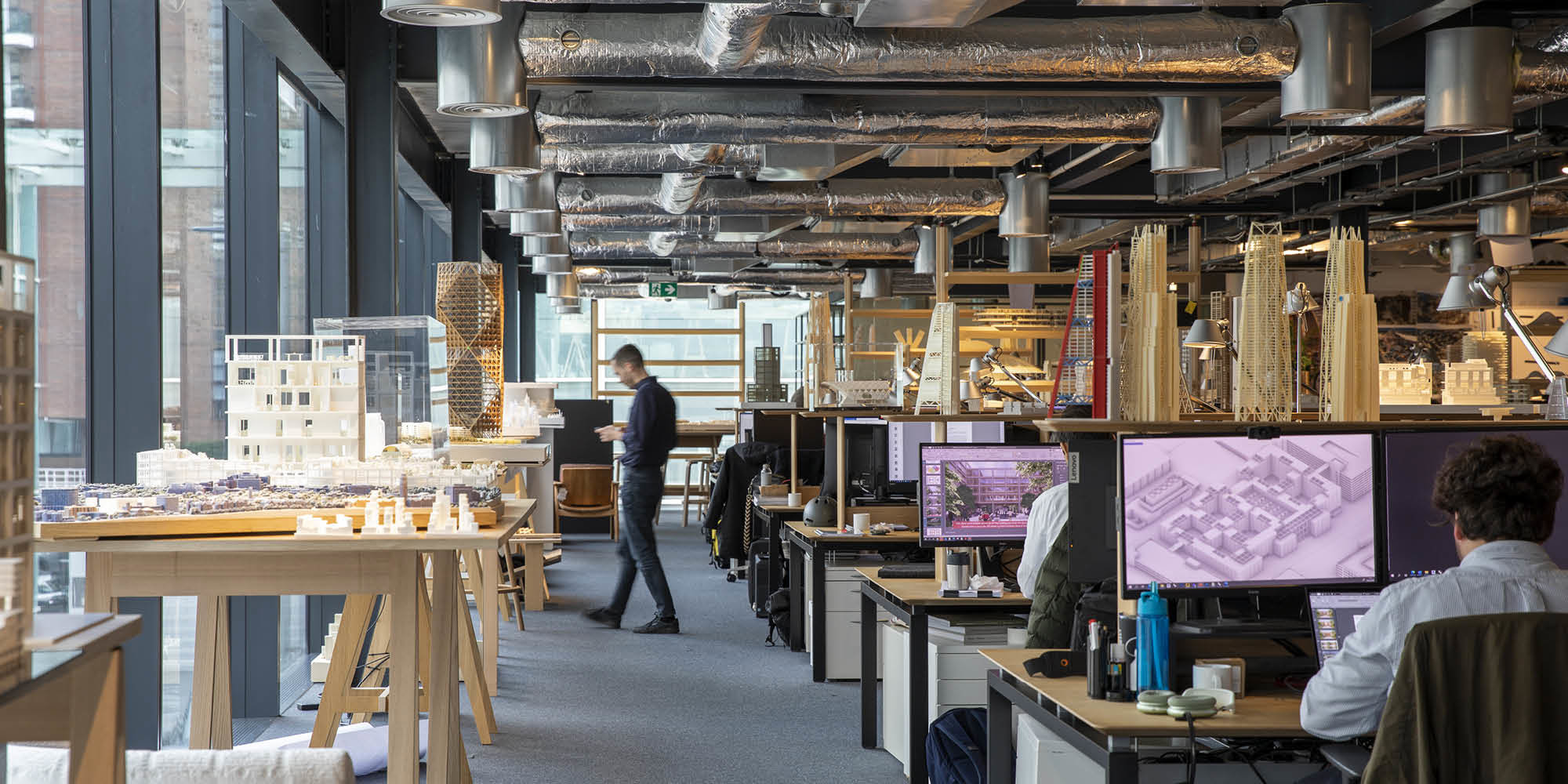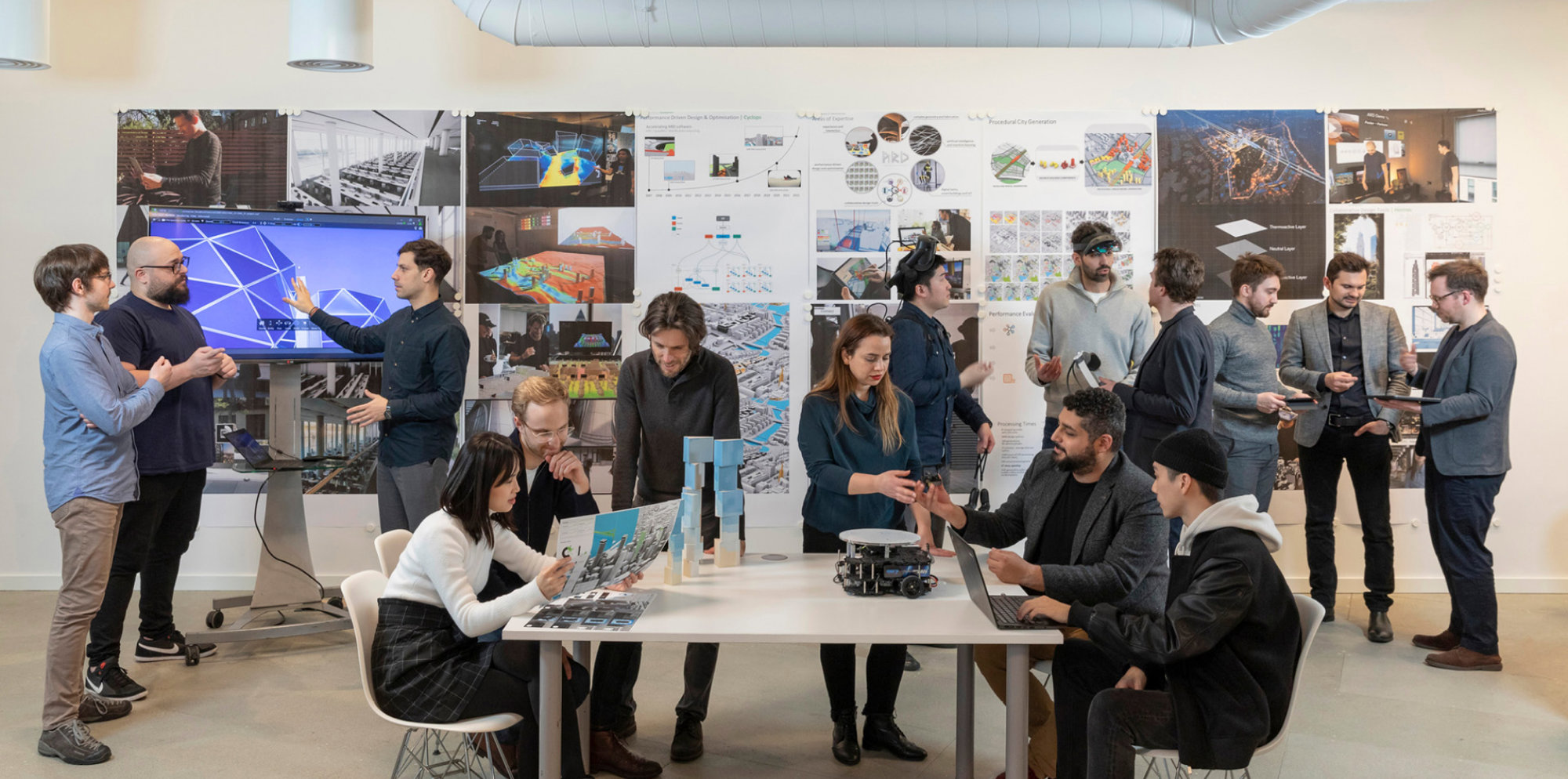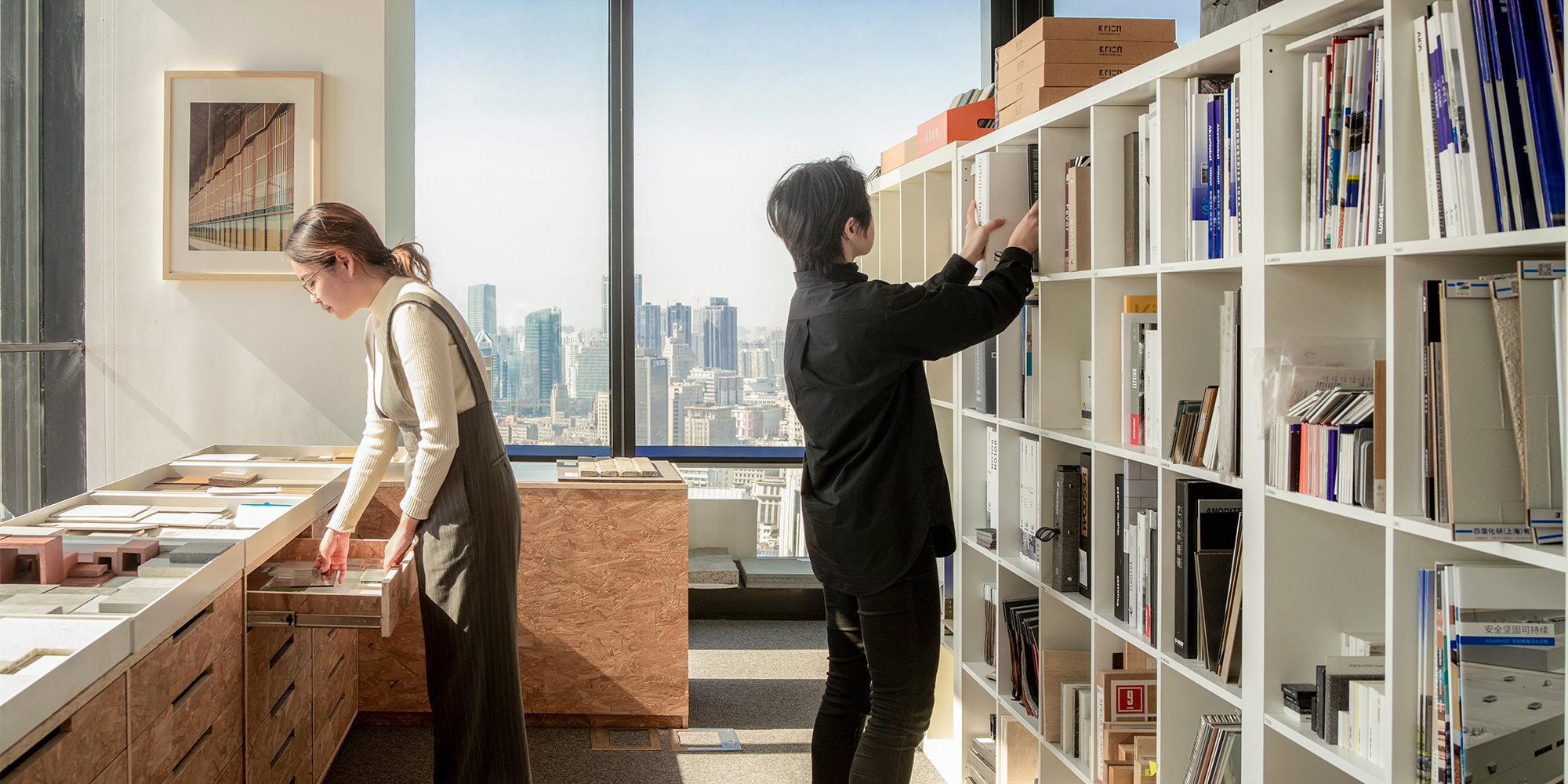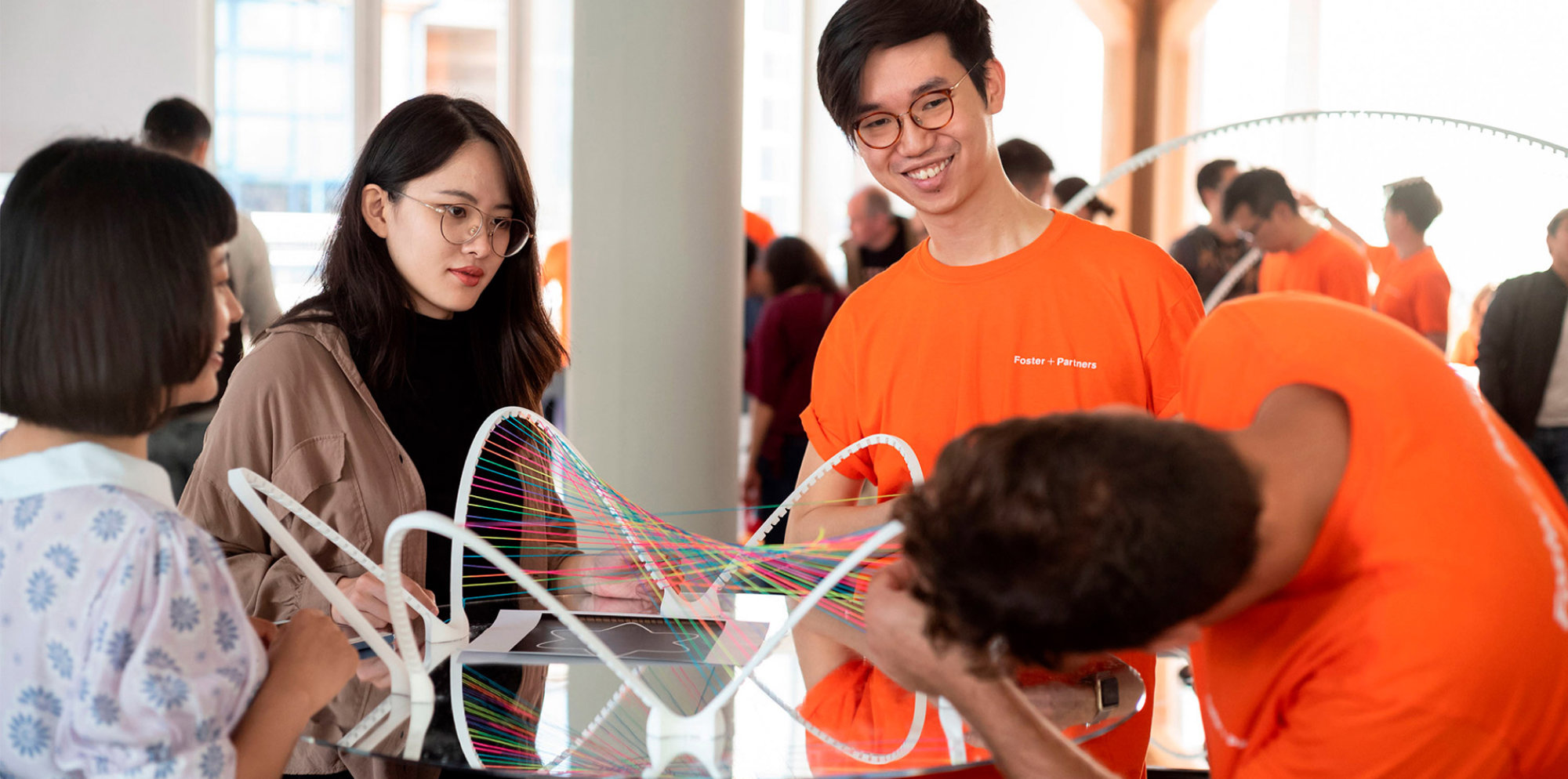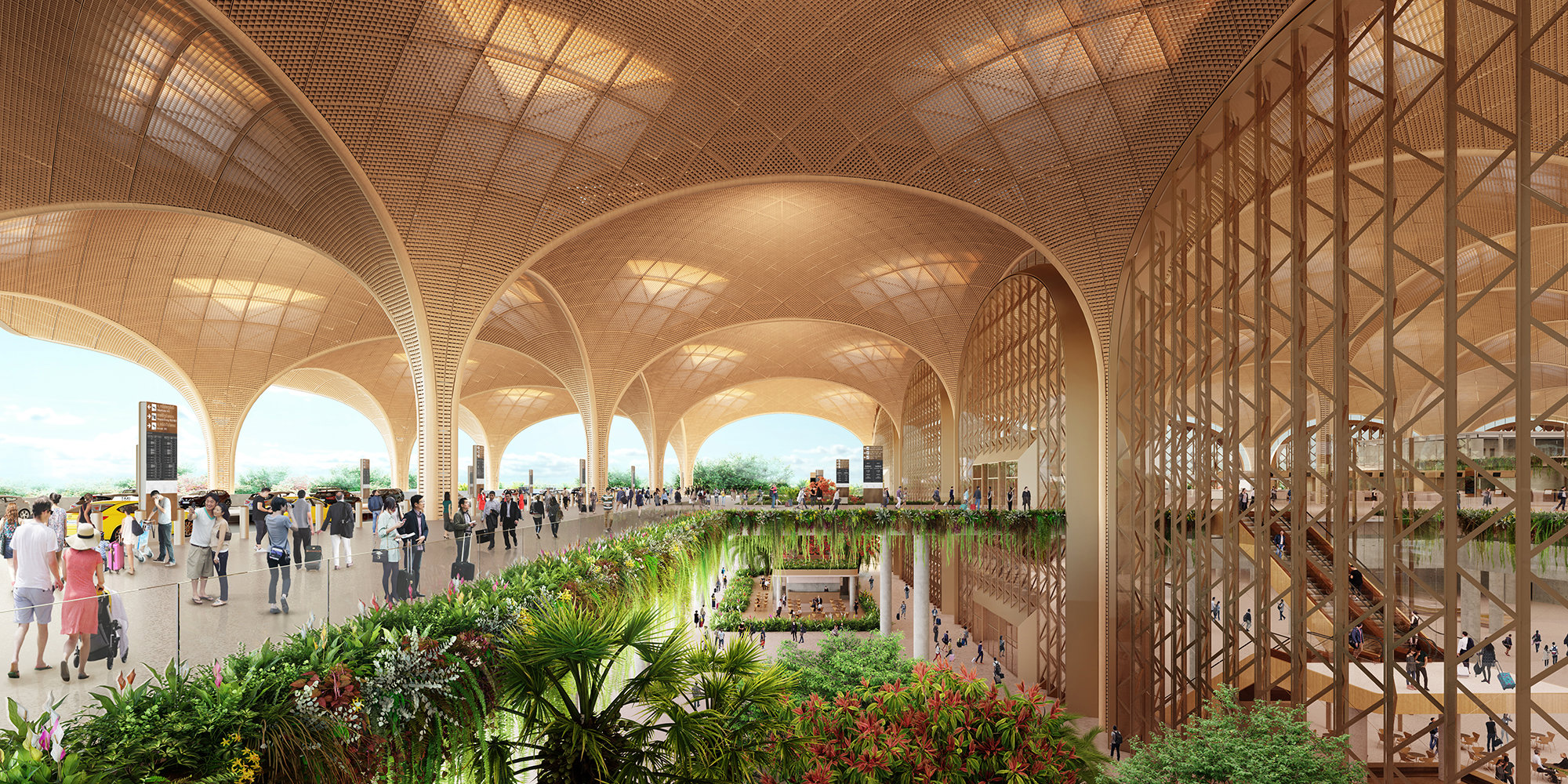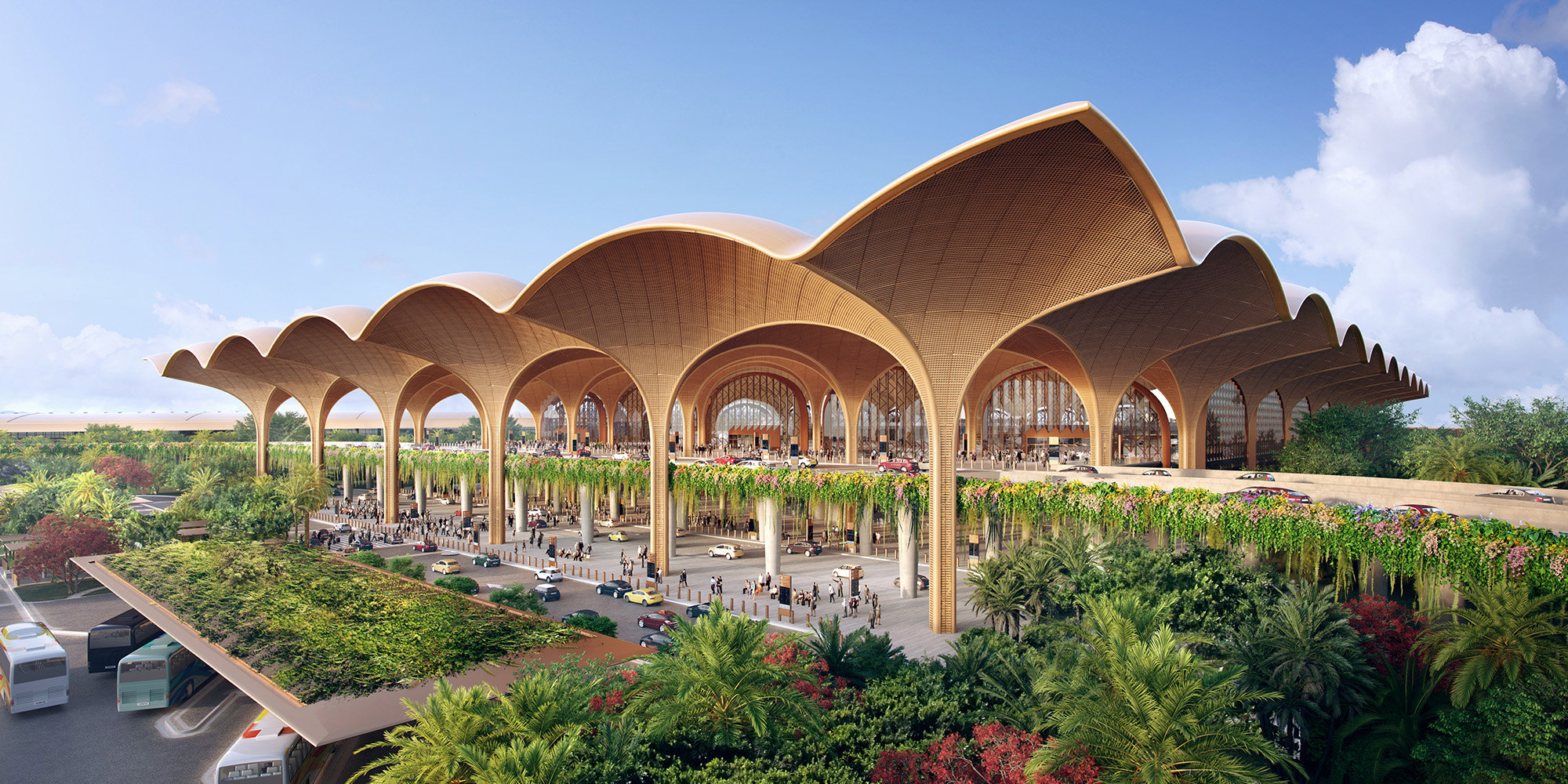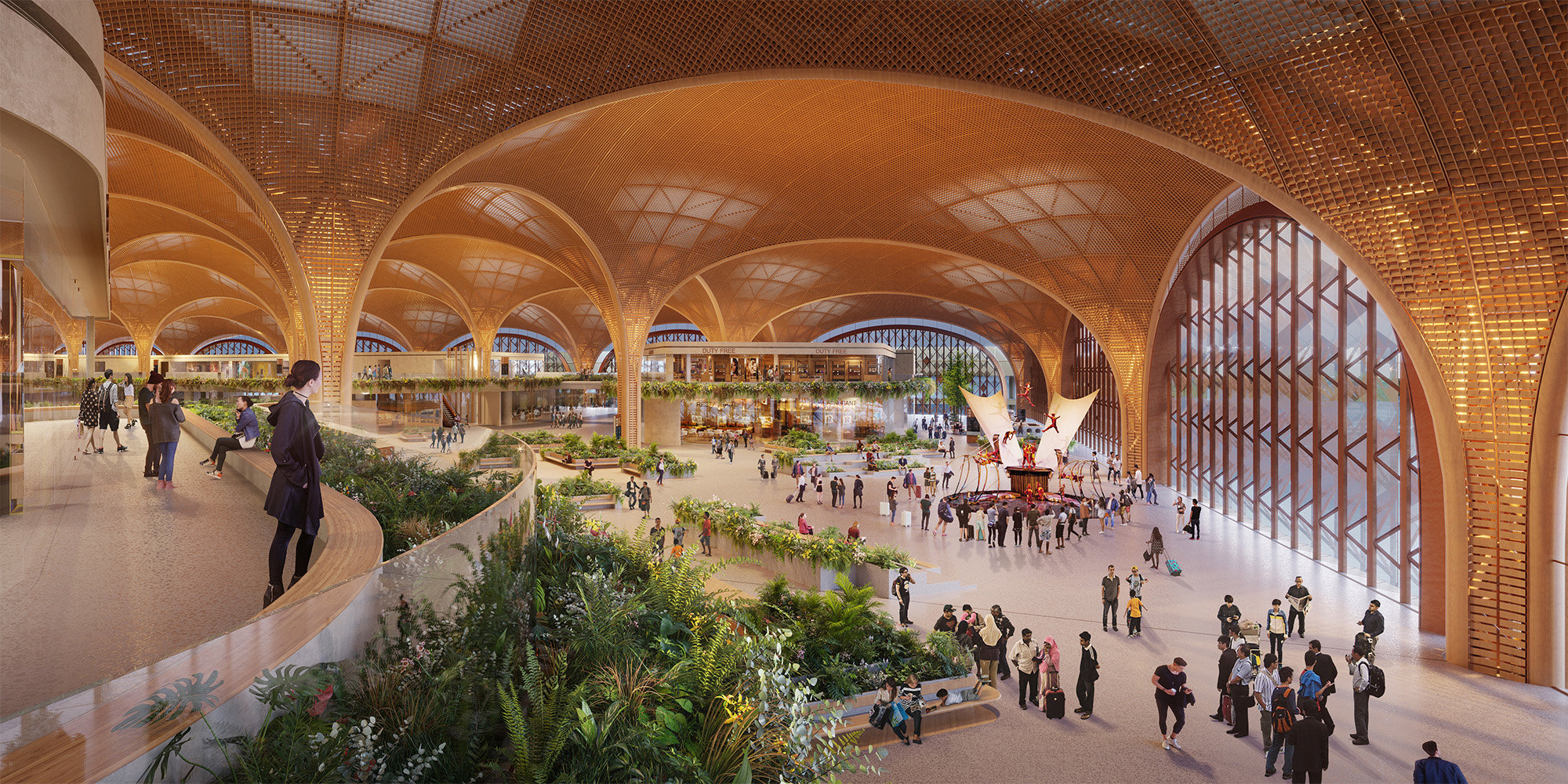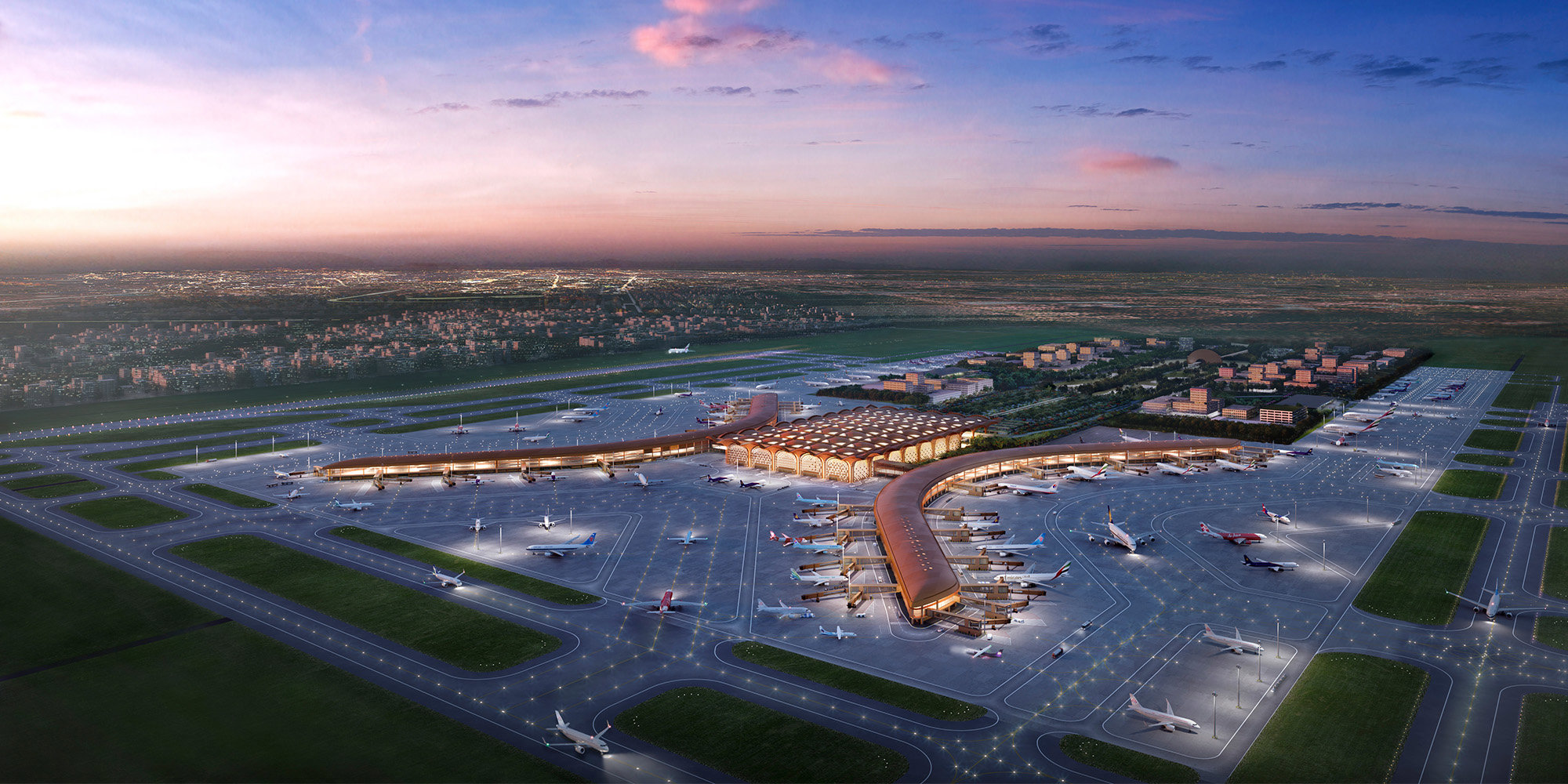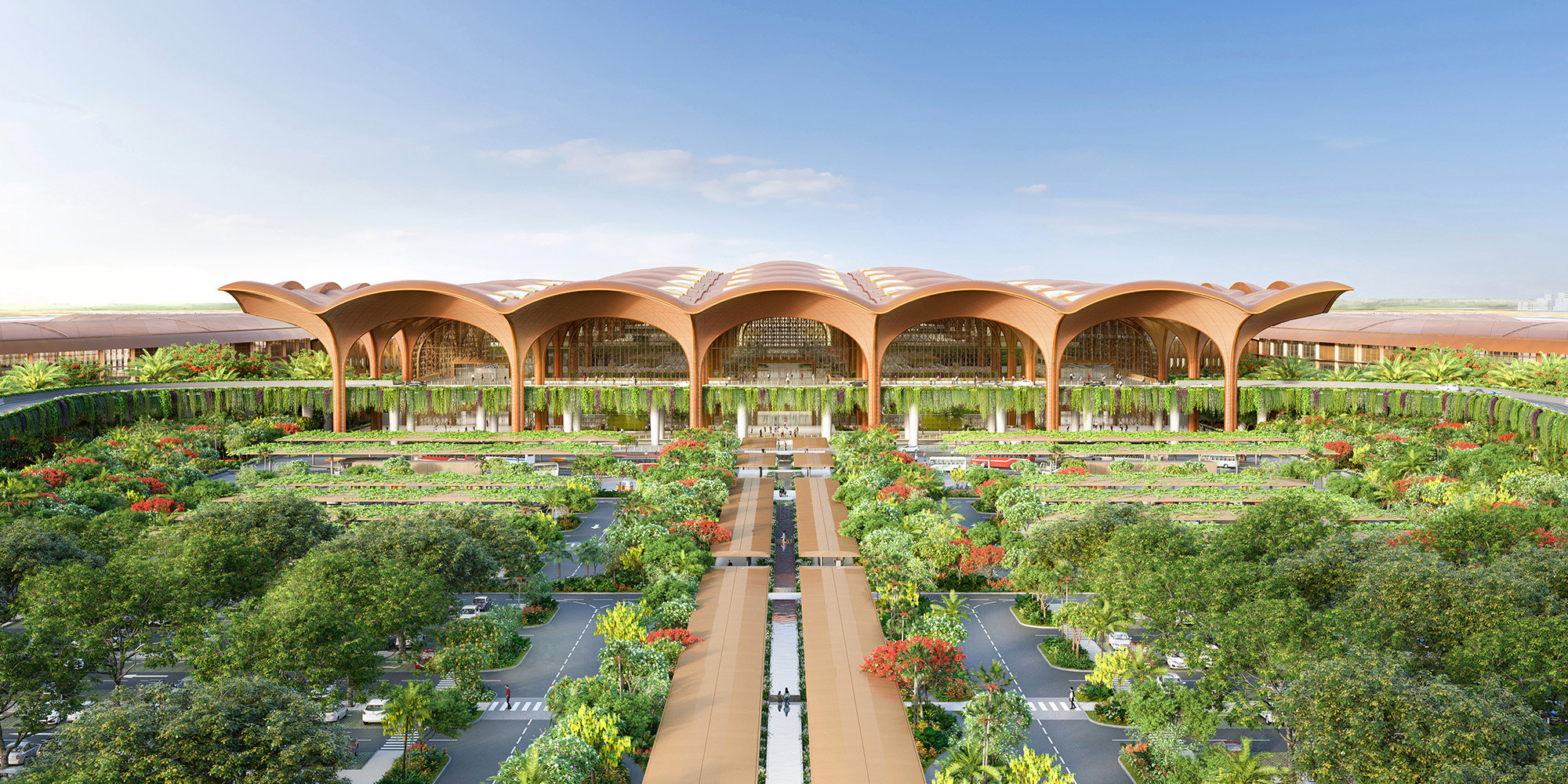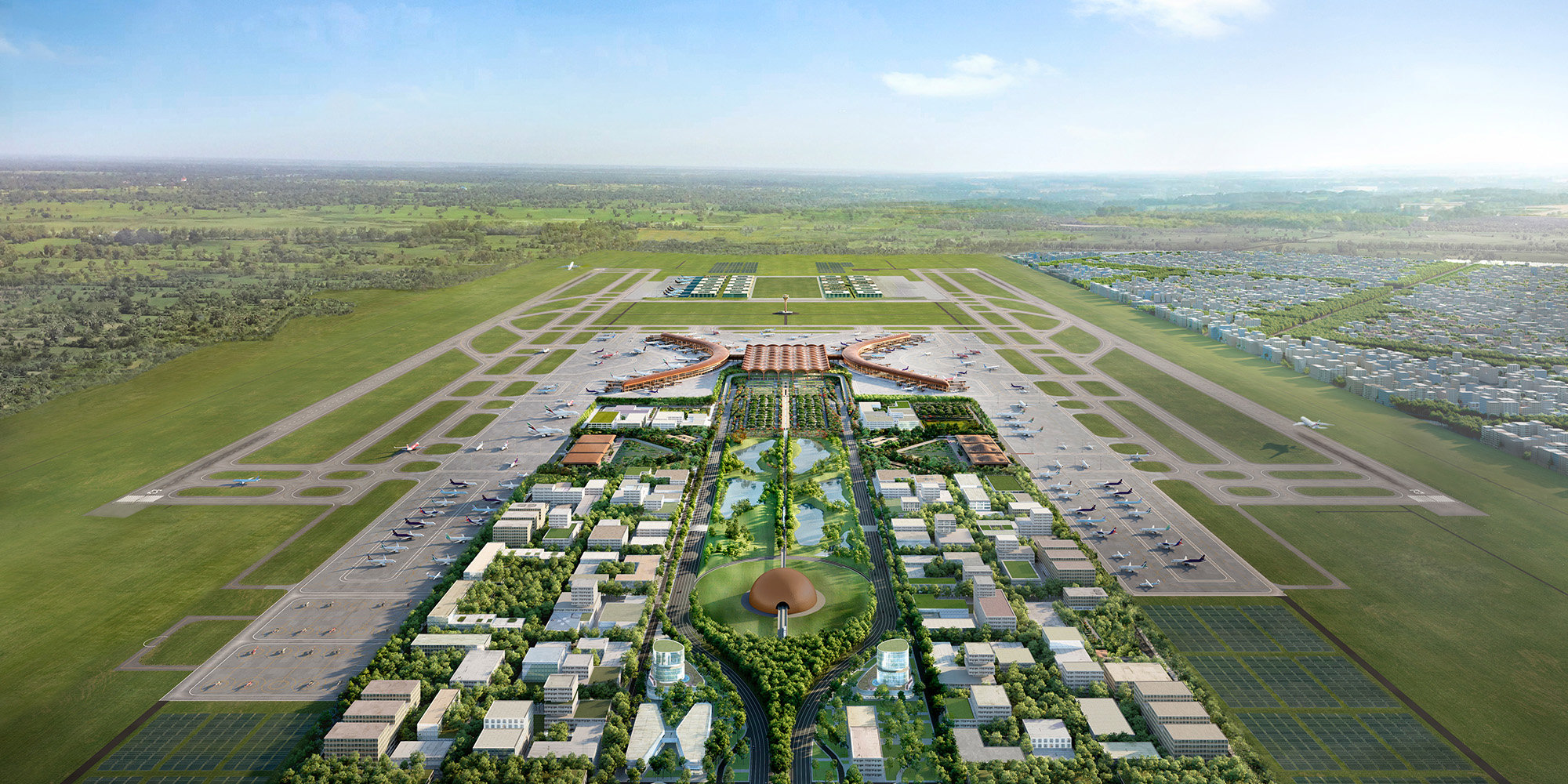Construction continues apace on the Techo International Airport in Phnom Penh, Cambodia. Located 20 kilometres south of the city centre, the project offers a new vision for Cambodia’s capital. The design embodies a strong sense of place, drawing inspiration from one of the oldest civilisations on earth, inspired by its vernacular forms, and responsive to the tropical climate. The overall competition-winning masterplan by the practice includes plans for a new airport city with a state-of-the-art terminal building at its heart, providing the highest levels of passenger experience and setting new standards for sustainability.
Stefan Behling, Head of Studio, Foster + Partners said: “An airport is amongst the most important of public buildings, reflecting its symbolic status as the gateway to a city and its crucial role in the globalised economy. The new Techo International Airport will be an important part of Phnom Penh’s continued development as the nation’s primary inter-regional, inter-modal transport hub.”
The terminal building comprises a central head house with two aerofoil shaped piers either side that optimise walking distances. The head house contains all the passenger processing, security and immigration, and retail elements under a single overarching roof canopy that stretches from the drop-off to the airside, providing shelter from the elements. The roof – supported by structural trees spanning 36 metres – is a lightweight steel grid shell, with an innovative screen that filters daylight and illuminates the vast terminal space. Designed to be highly legible at a human scale, there are minimal level changes throughout the terminal and views out to the apron to improve clarity and make movement intuitive. Interior materials are warm and welcoming, evoking the Cambodian vernacular in a contemporary manner.
Nikolai Malsch, Senior Partner, Foster + Partners said: “Inspired by Cambodia’s history and built heritage, the terminal’s design stands as a modern embodiment of Cambodian culture. The Terminal roof is an expression of lightness and inherent modularity, serving as a symbolic gateway for every traveller’s journey.”
Aspiring to be one of the greenest airports in the world, the project takes a sustainable design approach, combining the latest technology with local craftsmanship, whilst minimising running costs. Flooded with natural light, the terminal is full of lush greenery, with mature trees rising through the soaring central void and edge planting softening the interiors. The terminal will also be almost entirely run on energy generated by an onsite photovoltaic farm.
The modular construction and phased project timeline enhance constructability. The terminal is strategically located to anticipate future expansion scenarios. The first phase of the airport terminal includes the central head house and the aerofoil wings to the north, accommodating up to 13 million passengers a year. Subsequent phases will include the second aerofoil wing, accommodating 30 million passengers.
